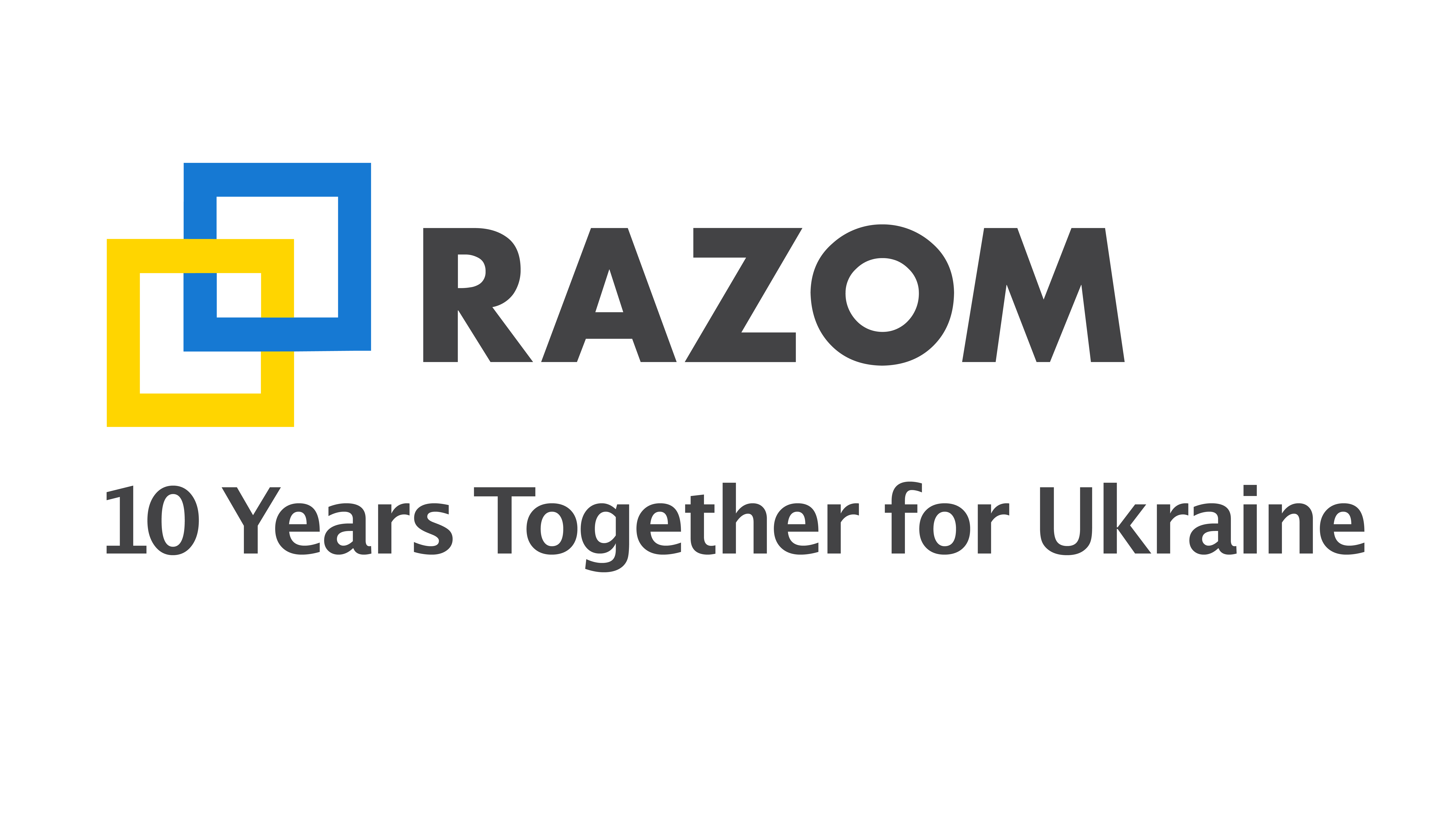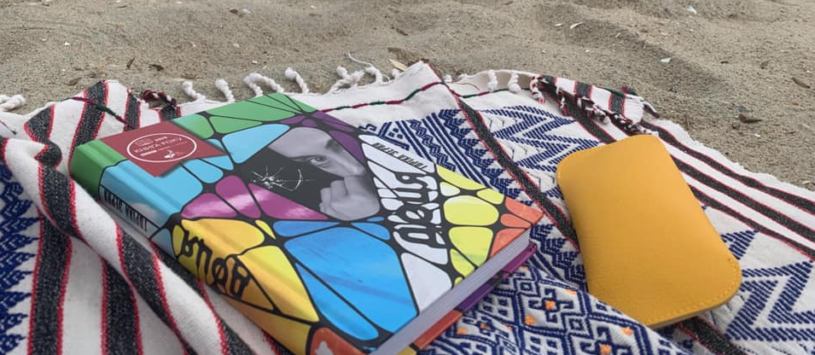When many of us are still staying at home for the quarantine measures, Razom Book Club keeps reading on and just had its fourth online meeting. This time the Club read and discussed the awarded book Dotsya (“Доця”).
Moverover, this Razom Book Club was pleased to introduce its readers to the volunteer Natalia Herasymenko, who became one of the prototypes of the heroine of the book Dotsya by Tamara Horikha Zernya. With the call-sign Elf, Natalia supported our military, living in Donetsk during 2014 and 2015. In 2016, she moved to Lviv, where she resides now.

Natalia, with her own unique perspective, can be rather eye-opening to many: “It’s easy to live thinking that here people are like this, and there – like that. But it turns out that people are the same throughout the territory.”
“People are very similar in one country, and the percentage of bad and good is the same everywhere. It is easy to say that there are bad people in that territory and that is why they have a war, and we are not bad, we are good, we are patriots, so we do not have a war. No, the war got settled there because it is close to the border, it had been prepared there for a long time, and it is fortunate that the leadership of Odessa, Kharkiv, Dnipropetrovsk regions decided that they did not need a war on their territories.”
“This is our land as well as Lviv region, as well as Kyiv region, and our children are the same” – stressed Natalia during the meeting.
The conversation covered numerous topics: from the life in pre-war Donetsk, and how it changed a few years before the war, to the laughter being the main defense against the fear of the real danger… from the fact that the majority of the Donetsk senior population have never been anywhere outside of the city, to the life of internally displaced people and prejudice against them, about the fatigue of Western Ukrainians from the war and from those migrants, how life goes on in Lviv as if there is no war.
Natalia shared how she’d asked the Ukrainian military not to hit her house which was 1.5 kilometers from the target. Yet, when she returned home, she found the apartment in pieces and a mine fragment in her refrigerator.
And certainly, finishing with the topics of the current state of the veterans’ movement and how one can support veterans who have suffered, if not physically, then psychologically.
Her narrative, very humble, yet deeply motivating, revealed the inner world of a volunteer who happened to be on the borderline of the ongoing war: “There will be different others wars. When you think, “Oh, nothing depends on me,” and you watch others do something while you are sitting through, it’s harder to endure this war. I would like young people to always strive to do a little more, because these actions will then save many and you, too. In the days when it seemed to me that I was saving others, I was actually saving myself. I would like people to come out of their shells and help others.”
The readers who participated in the online meeting agreed unanimously that the book is a must read. Maria Shevchenko, a graduate of the Brown University said: “All young people in Ukraine must read this book because it is very subtly written about the difference between life in Donetsk and the rest of Ukraine. I would like all my friends from Brown to read this book, because it perfectly conveys that people can be different, but there is so much more that unites us. This is very important for our country now. ”
And personal communication with Natalia has deeply touched all the participants. Tamara Shevchenko wrote: “Natalia is a sunshine and such a modest person, which impressed me and my daughter. It was very interesting to meet and talk to her. Dotsya’s image is positive, inspiring and exciting! And I expected that Natalia should be like that! But in addition to all these qualities she is incredibly modest, and understand the main thing – that every Ukrainian can change the world!”
“She is truly inspiring, – added Olena Kushch, – She herself does not realize that she is a real heroine, she has a completely different scale of measurements.”
Listen to the Razom Book Club meeting (in Ukrainian) and form your own opinion.
Read the next book and join the next meeting of the Book Club that will discuss Artem Chapay’s book Strange People (Дивні Люди). And join Razom Book Club group on Facebook to keep up to date with the modern Ukrainian authors that surely deserve your time and attention.

